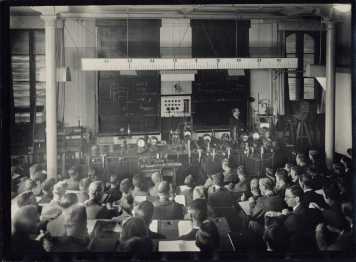Future Learning Initiative - Physical Spaces Project

This interdisciplinary project will develop a research framework to evaluate and validate the interaction of learners and physical spaces across various learning settings. Research questions to be addressed include: What are students’ current needs and preferences for learning spaces? How are these matched by existing learning spaces at ETHZ? How should learning spaces accommodate adaptive digital learning? What is the influence of the mobile era / learning on the go?
The Physical Spaces project is a collaboration between the Chair of Cognitive Science and the Chair of Architectural Behaviorology (Prof. Momoyo Kaijima, https://kaijima.arch.ethz.ch/).
The project is part of the Future Learning Initiative, led by Prof. Manu Kapur, and funded through ETH+.
An initial state-of-knowledge review will highlight current trends in the design of student spaces and on students’ preferences. Within this review we will contact each department and work with ETHZ real estate and facilities management (via both the Rector and the VP of HR and Infrastructure) to identify existing efforts of developing and evaluating learning spaces. From this, case studies will be selected for in-depth analysis, including stakeholder interviews and surveys, observations in various learning settings and large-scale data collection on space usage and learning outcomes. This will be complemented by Virtual Reality simulation of design alternatives for a case study; the architects on the project team will elaborate or, in the case there are none available, develop design alternatives, and the cognitive scientists will run behavioral experiments testing the benefits of each design solution. We also propose to run Social Network studies based on tracking the movement and interactions of volunteer student and teacher participants, documenting learning opportunities and topical exchange.
